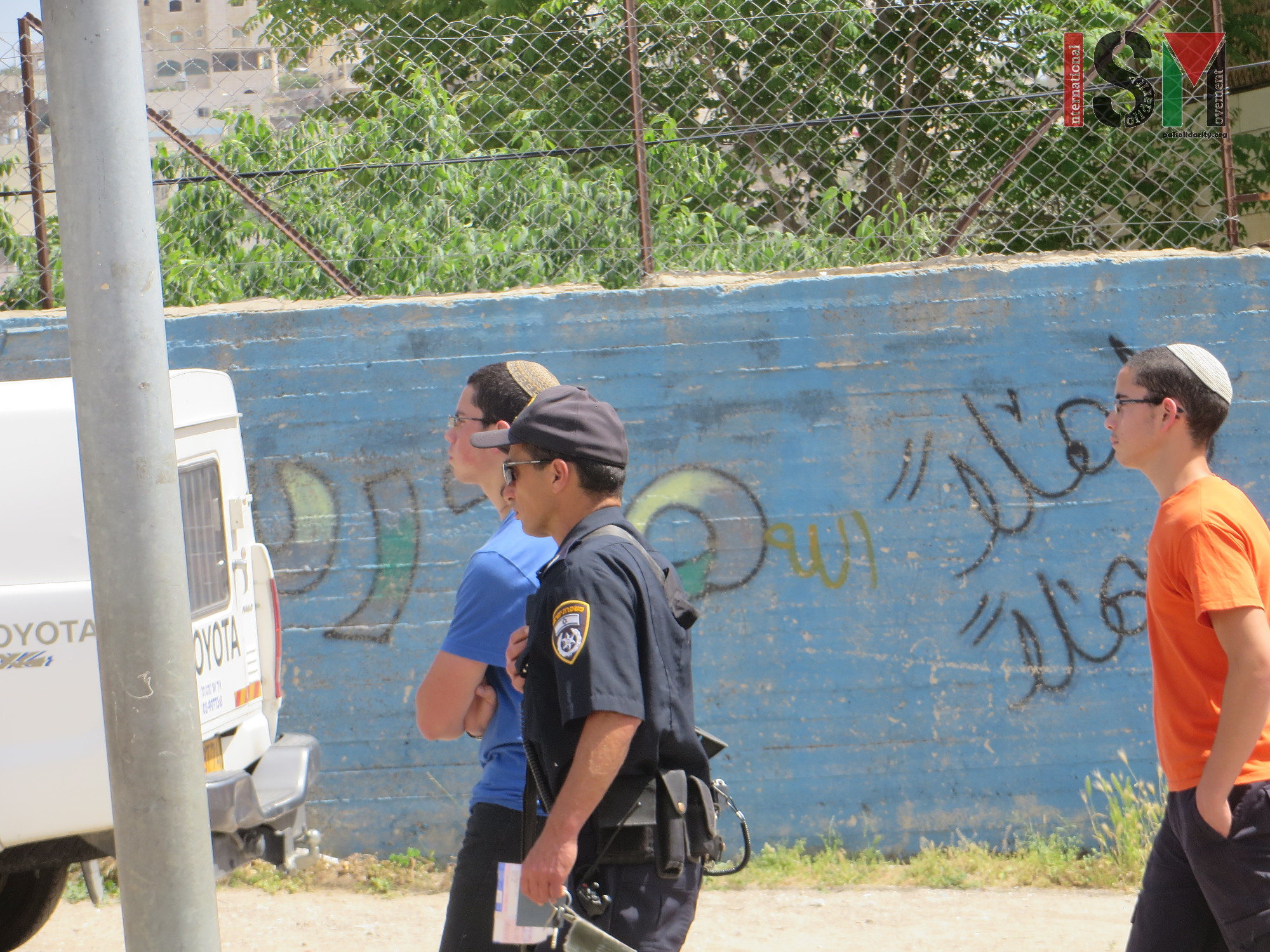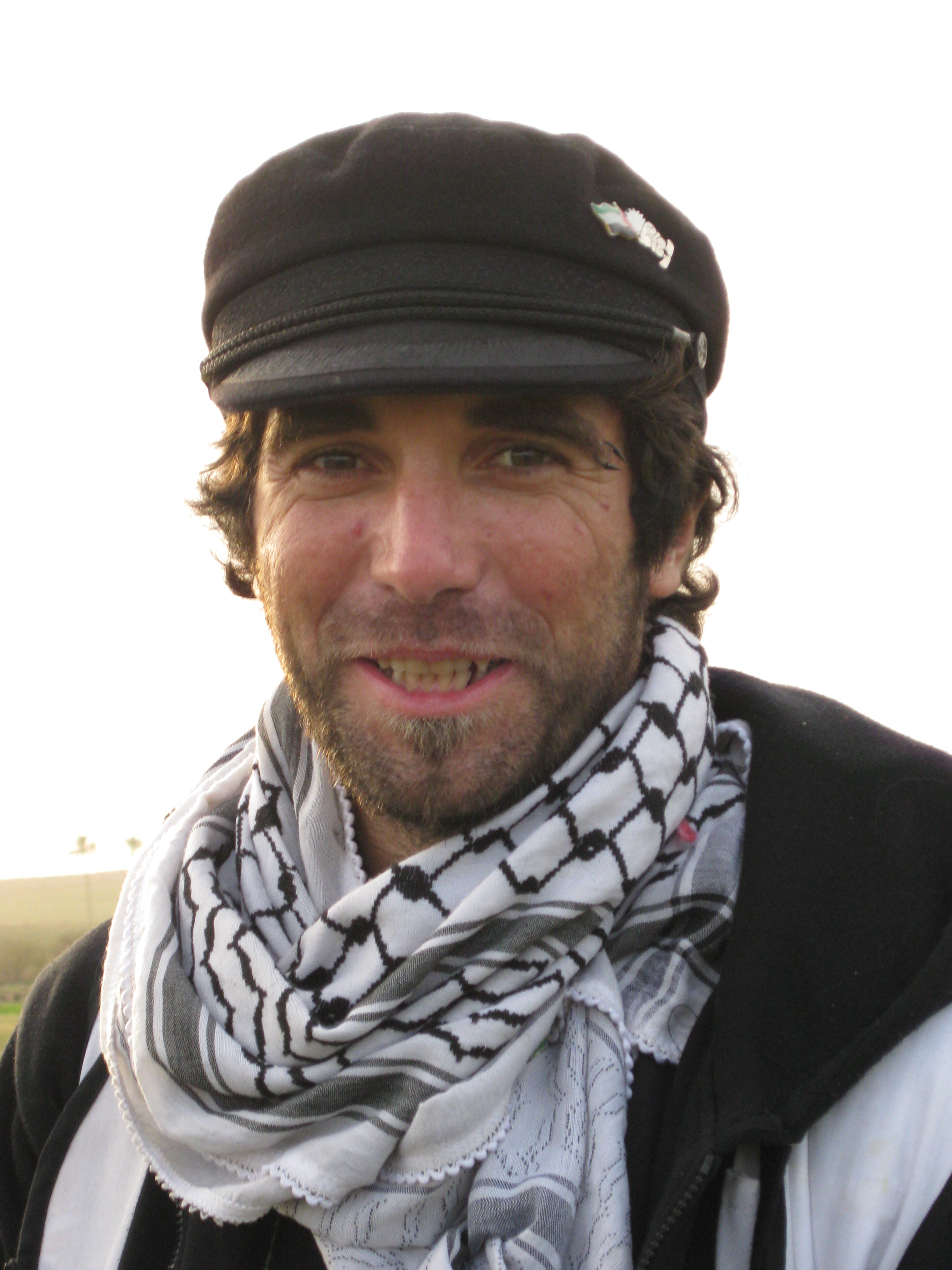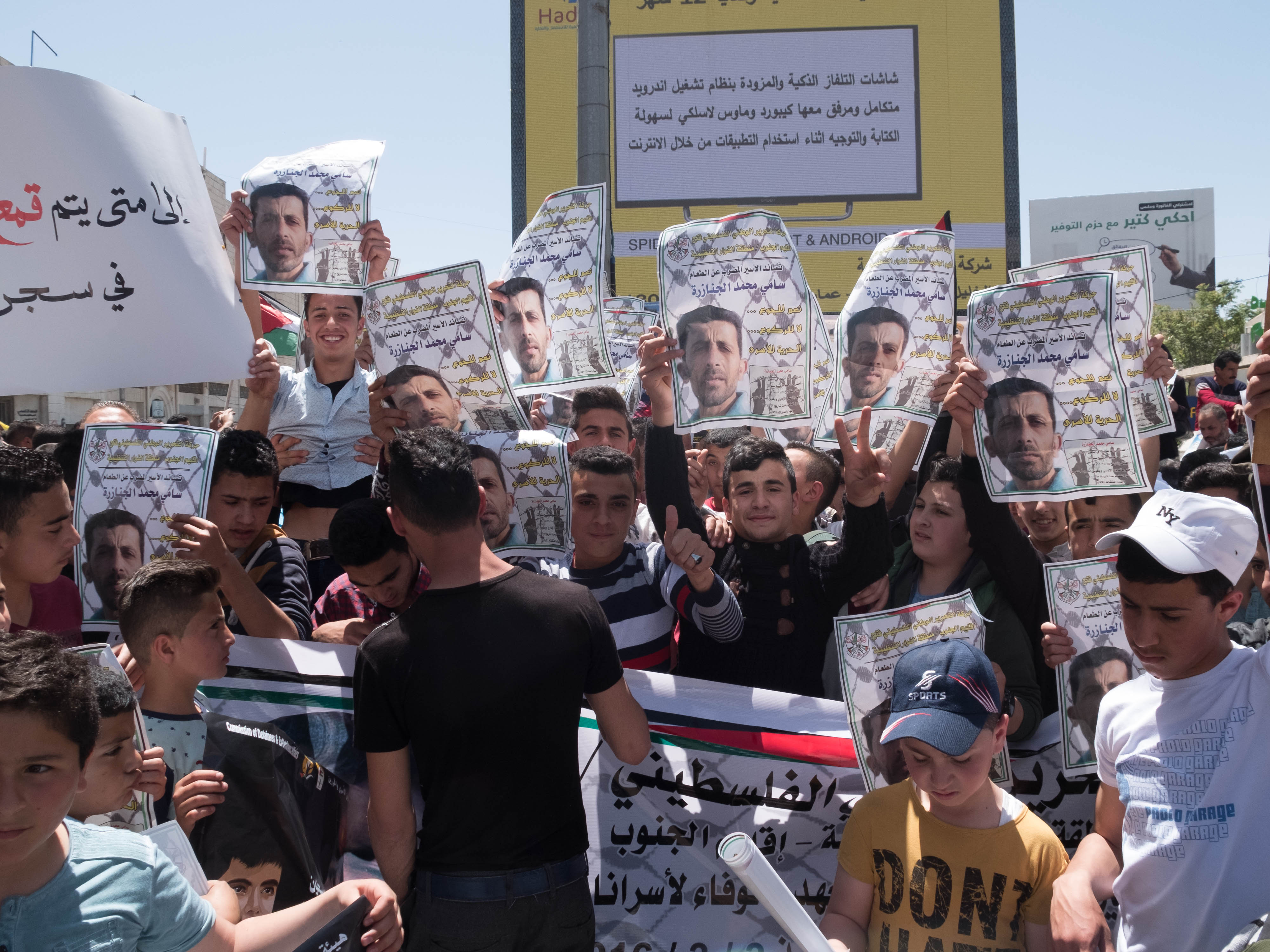-
Palestinian youth intentionally run over in Hebron
22st April 2016 | International Solidarity Movement, al-Khalil team | Hebron, occupied Palestine On the afternoon of 21st April 2016, an Israeli settler ran down a Palestinian youth with his car, causing critical injuries, near the Ibrahimi mosque in occupied al-Khalil (Hebron). Two settlers were driving down the road connecting Shuhada Street and Kiryat Arba in […]
-
Five year anniversary of the death of Vittorio Arrigoni
18th April 2016 | International Solidarity Movement, al-Khalil team | Gaza, occupied Palestine Last Thursday 14th April marked four years since the disappearance of Vittorio Arrigoni in Gaza, under the Israeli blockade. According to subsequent statements and investigations carried out by Hamas, ISM activist Vittorio’s body was discovered the following day, having been kidnapped and […]
-
Sami Janazreh enters 46th day of hunger strike
17th April 2016 | International Solidarity Movement, Al-Khalil Team | Hebron, occupied Palestine Today volunteers from ISM attended a demonstration in Al-Khalil for Prisoners’ Day. Once the main demonstration had ended in the city a group of young Palestinians invited the volunteers to the Fawwar refugee camp outside the city. At the camp they were […]
Action Alert An Nabi Saleh Apartheid Wall Arrests BDS Bethlehem Bil'in Cast Lead Demonstration Denial of Entry Ethnic Cleansing Farmers Gaza Global Actions Hebron House Demolition International law Israeli Army Jerusalem Live Ammunition Nablus Ni'lin Prisoner Ramallah Rubber-coated steel bullets Settlement Settlers Settler violence Tear-Gas Canister Video



